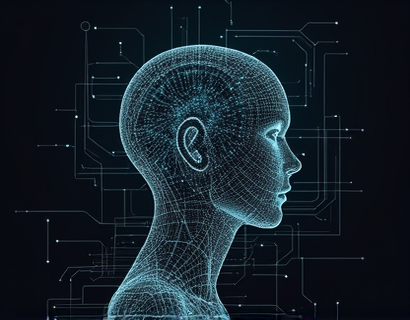AI-Powered Task Management: Elevating Personal and Professional Productivity with Intelligent Agents
In the rapidly evolving landscape of technology, AI-powered task management has emerged as a transformative force, revolutionizing the way individuals and businesses handle their daily tasks. This innovative approach leverages the capabilities of intelligent agents to intelligently manage a wide range of personal and professional responsibilities, streamlining operations and significantly enhancing efficiency. By automating routine tasks and providing intelligent support, these AI agents enable users to focus on high-priority activities, thereby redefining task management and boosting overall productivity.
The concept of using AI in task management is not new, but recent advancements in machine learning and natural language processing have made these solutions more sophisticated and user-friendly. Intelligent agents, powered by AI, can understand context, learn from user behavior, and adapt to specific needs, making them invaluable tools for both personal and professional use. These agents can handle everything from scheduling appointments and managing emails to coordinating project timelines and tracking progress, all while minimizing human intervention.
Enhancing Personal Productivity
For individuals, AI-powered task management tools offer a personalized approach to productivity. These tools can integrate with various calendars, to-do lists, and communication platforms, creating a seamless ecosystem that keeps users organized and on track. By automating repetitive tasks, such as setting reminders or sending follow-up emails, AI agents free up valuable time, allowing users to concentrate on more meaningful activities.
One of the key benefits of AI in personal task management is its ability to predict and proactively manage tasks. For instance, an AI agent can analyze a user's schedule and habits to suggest optimal times for tasks, taking into account factors like energy levels and availability. This level of personalization ensures that users are not only more productive but also less stressed, as the burden of constant planning and organization is alleviated.
Boosting Professional Productivity
In a professional setting, the impact of AI-powered task management is even more pronounced. Businesses can leverage these intelligent agents to optimize workflows, improve collaboration, and enhance decision-making processes. AI agents can assist in managing complex projects by breaking them down into manageable tasks, assigning responsibilities, and monitoring progress in real-time. This ensures that projects stay on track and that resources are utilized efficiently.
Moreover, AI agents can facilitate better communication and collaboration among team members. By centralizing task management and providing a single source of truth, these tools reduce the likelihood of miscommunication and ensure that everyone is aligned with the project goals. Automated updates and notifications keep all stakeholders informed, reducing the need for constant meetings and status reports.
Key Features of AI-Powered Task Management Tools
To fully understand the benefits of AI-powered task management, it's essential to explore some of the key features that these tools offer:
- Automated Task Creation: AI agents can automatically generate tasks based on emails, messages, or other inputs, ensuring that nothing slips through the cracks.
- Intelligent Scheduling: These tools can analyze user preferences and availability to suggest the best times for meetings and tasks, optimizing productivity.
- Real-Time Updates: AI agents provide real-time updates on task statuses and project progress, keeping everyone informed and aligned.
- Predictive Analytics: By analyzing historical data, AI agents can predict future tasks and potential bottlenecks, allowing for proactive management.
- Integration Capabilities: These tools can integrate with a wide range of third-party applications, creating a cohesive and efficient workflow.
Case Studies and Real-World Applications
Several organizations have already embraced AI-powered task management, achieving significant improvements in productivity and efficiency. For example, a mid-sized software development company implemented an AI-driven task management tool to streamline their development and project management processes. The tool automatically created tasks from project requirements, assigned them to team members based on availability and expertise, and provided real-time updates on progress.
The results were remarkable. The company reported a 30% reduction in project completion time and a 25% increase in team satisfaction. Team members appreciated the reduced administrative burden and the ability to focus on coding and problem-solving. Another example is a marketing agency that used an AI agent to manage client communications and campaign timelines. The AI agent not only handled routine tasks but also provided insights into client preferences and campaign performance, enabling the agency to make data-driven decisions.
Challenges and Considerations
While the benefits of AI-powered task management are clear, there are several challenges and considerations that users should be aware of. One of the primary concerns is the initial setup and integration of these tools into existing workflows. This process can be time-consuming and may require some technical expertise. However, most AI task management solutions offer user-friendly interfaces and comprehensive support to facilitate a smooth transition.
Another consideration is data privacy and security. Since these tools often handle sensitive information, it's crucial to choose solutions from reputable providers that prioritize data protection and comply with relevant regulations. Users should also be mindful of over-reliance on AI, ensuring that they maintain oversight and make final decisions when necessary.
Future Trends in AI-Powered Task Management
The future of AI-powered task management is promising, with several trends shaping the evolution of these tools. One significant trend is the integration of augmented intelligence, where AI complements human capabilities rather than replacing them. This approach ensures that users remain in control while benefiting from AI's efficiency and insights.
Another trend is the incorporation of emotional intelligence in AI agents, enabling them to understand and respond to user emotions. This can lead to more intuitive and supportive interactions, further enhancing user experience. Additionally, the rise of edge computing will allow AI agents to process data locally, reducing latency and improving responsiveness.
Conclusion
AI-powered task management represents a significant leap forward in productivity tools, offering unparalleled support for both personal and professional tasks. By automating routine activities and providing intelligent assistance, these agents help users focus on high-value tasks, ultimately leading to greater efficiency and success. As the technology continues to evolve, the potential for even more innovative applications is vast, making AI-powered task management an essential consideration for anyone looking to enhance their productivity.











































